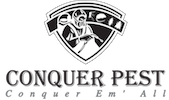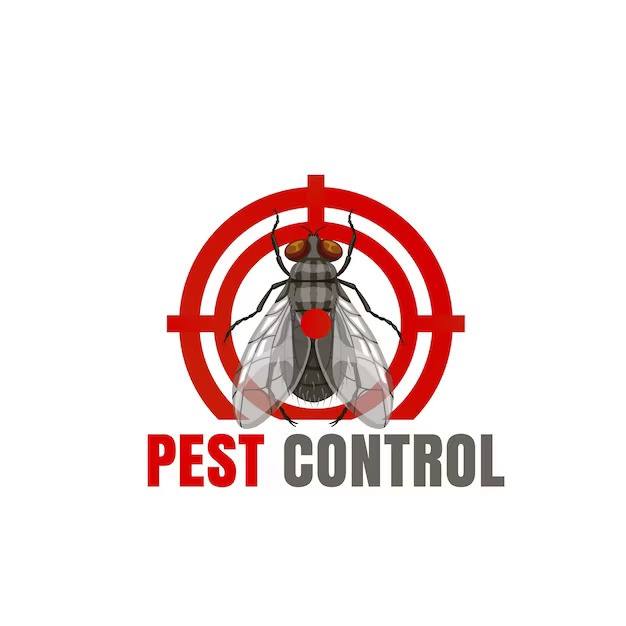Effective Fly Pest Control in Singapore: Keeping Flies Away from Your Property
Flies can be a persistent nuisance in Singapore, especially in its warm and humid climate, where they thrive. These pesky insects not only disrupt your peace but also pose significant health risks by acting as vectors for various diseases. Singapore’s tropical climate provides an ideal breeding ground for flies, making effective fly pest control essential for maintaining a healthy and comfortable living environment.
The incessant buzzing and unwelcome presence of flies can be not only annoying but also detrimental to your well-being. Flies are known to land on a multitude of surfaces, including garbage, sewage, and decaying matter, before making contact with your food and living spaces. This behavior makes them carriers of harmful pathogens, putting you and your family at risk of foodborne illnesses, respiratory infections, skin irritations, eye infections, and the transmission of disease-causing microorganisms.
Thankfully, there are comprehensive strategies and methods to combat these airborne nuisances effectively. In this guide, we will delve into a range of techniques and practices that can be tailored to the unique challenges of Singapore’s environment, helping you safeguard your property and loved ones from the perils of fly infestations.
The Importance of Fly Pest Control
Flies are more than just bothersome insects; they can be vectors for numerous diseases. Some of the most common diseases associated with flies include:
Food Contamination: Flies are known to land on various surfaces, including trash and decaying matter, before coming into contact with your food. This can lead to foodborne illnesses such as diarrhea, gastroenteritis, and food poisoning.
Respiratory Infections: Flies can carry pathogens that cause respiratory infections. When they come into contact with surfaces you touch, they can transfer these pathogens to your hands and, ultimately, to your respiratory system.
Skin Infections: Fly bites can cause skin irritation and infections, leading to discomfort and potential complications.
Eye Infections: Flies are attracted to moisture, including the moisture in our eyes. Their presence near your eyes can lead to eye infections and discomfort.
Transmission of Disease-Causing Microorganisms: Flies can carry various microorganisms, including bacteria and viruses, on their bodies and transmit them to humans through contact.
Given these health risks, it is essential to implement effective fly pest control measures to protect your home and family.
Common Fly Species in Singapore
Before diving into pest control methods, let’s identify some common fly species found in Singapore:
Houseflies (Musca domestica): These are the most common flies found in and around homes. They are attracted to food, trash, and decaying matter.
Fruit Flies (Drosophila spp.): Fruit flies are attracted to overripe fruits and vegetables. They can quickly infest your kitchen if not controlled.
Drain Flies (Psychodidae): These tiny flies are commonly found near drains and sewage areas. They breed in stagnant water and organic matter.
Blowflies (Calliphoridae): These flies are attracted to animal carcasses and decaying matter. They are often associated with outdoor areas.
Now that we’ve identified the common fly species let’s explore effective pest control strategies.
Effective Fly Pest Control Strategies
1. Maintain Proper Hygiene
One of the most crucial steps in fly pest control is maintaining proper hygiene. Flies are attracted to filth and decaying matter. Here are some hygiene practices to follow:
Regular Cleaning: Clean your home regularly, especially the kitchen and dining areas. Wipe down countertops, tables, and floors to remove food residues and spills.
Proper Waste Disposal: Seal trash bags tightly and dispose of them regularly. Keep outdoor trash bins covered to prevent flies from breeding in them.
Store Food Properly: Keep food items in airtight containers to prevent flies from contaminating them. Refrigerate fruits and vegetables to deter fruit fly infestations.
Clean Drains: Regularly clean and sanitize drains to prevent the buildup of organic matter that attracts drain flies.
2. Use Fly Screens and Nets
Installing fly screens and nets on doors and windows is an effective physical barrier to keep flies out while allowing fresh air to circulate. Ensure that screens are in good condition and have no holes or gaps that flies can use to enter your property.
3. Fly Traps and Baits
Fly traps and baits can be useful in reducing fly populations. There are various types available, including:
Fly Paper: Sticky fly paper can be hung in problem areas to trap flies when they land on it.
Electric Fly Zappers: These devices use ultraviolet light to attract flies and then zap them with an electric shock.
Fly Baits: Fly baits contain attractants that lure flies to the bait, where they ingest a toxic substance and die.
4. Biological Control
Introducing natural predators of flies can be an effective long-term strategy. For example, you can consider releasing parasitoid wasps that lay their eggs inside fly pupae, eventually killing the flies. However, this method may require professional assistance.
5. Professional Pest Control Services
In severe infestations or when other methods fail, it’s advisable to seek the services of a professional pest control company in Singapore. These experts have the knowledge, experience, and access to specialized tools and chemicals to effectively control fly infestations.
6. Homemade Remedies
If you prefer natural and homemade remedies, consider the following:
Vinegar Trap: Fill a jar with apple cider vinegar and cover it with plastic wrap. Poke small holes in the plastic wrap. Flies will be attracted to the vinegar and get trapped inside.
Essential Oils: Certain essential oils, like eucalyptus and lavender, can repel flies. Mix a few drops of these oils with water and use them as a natural fly repellent.
Herbs: Planting herbs like basil, mint, and rosemary around your property can deter flies.
7. Regular Inspections and Maintenance
Once you’ve implemented these pest control strategies, it’s essential to conduct regular inspections to ensure their effectiveness. Make necessary repairs to screens, traps, or baits and adjust your methods as needed.
Conclusion
Effective fly pest control is essential for maintaining a healthy and comfortable living environment in Singapore. By implementing a combination of proper hygiene practices, physical barriers, traps, biological control methods, and, when necessary, professional assistance, you can significantly reduce fly populations and minimize the health risks associated with these pesky insects. Remember that consistency and diligence are key to keeping flies away from your property and ensuring the well-being of your family.



